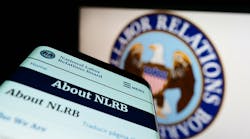President Obama's immigration initiative sparked political conflagration long before it was publicly announced in November 2014, engulfing Democrats running for office earlier that month, but its impact on employers still remains unclear.
At the time this was written many aspects of the President's program had yet to be spelled out in detail, and speculation about it has created a haze of confusion. For one thing, Obama's apparent failure to put his signature to a written document describing the new policy has raised questions over whether his expansion of the Deferred Action for Childhood Arrivals program is actually an Executive Order.
Unanswered questions surround whether benefits like Medicare and Social Security will be available to these immigrants. In one case, because noncitizens are banned from obtaining health insurance under the Affordable Care Act, employers may be able to hire unnaturalized immigrants and not provide them with health insurance while avoiding the $3,000 per-employee penalty for doing so—a substantial financial incentive for hiring them instead of American citizens.
Even before the President's policy announcement, federal agencies have taken actions for years on immigrant employment, including working with each other, and even collaborating with the Mexican government to help immigrant workers.
Late last year the Equal Employment Opportunity Commission (EEOC) and the Mexican Ministry of Foreign Affairs agreed to create programs benefiting Mexicans working in the U.S. The EEOC will train Mexican consulate staff about how to provide guidance to Mexican workers about their rights under our equal employment and anti-discrimination laws. The Labor Department, OSHA and the National Labor Relations Board (NLRB) have similar agreements with several Mexican consulates.
In 2013 the NLRB and Justice Department began coordinating assistance for immigrant employees they believe were exploited by employers. But the NLRB lost two of its weapons when the Supreme Court said it cannot order employers to provide back pay or reinstatement for illegal immigrants. In addition, a federal district court recently ordered the NLRB to pay more than $55,000 in attorneys' fees to an employer it had ordered to reinstate employees fired for violating the federal E-Verify law.
In another development the EEOC has ramped up a campaign of lawsuits against employers who require workers to speak English where employers can't prove job functions require English proficiency. Expect federal agencies to continue pursuing these and other initiatives not directly arising from the President's new policy.
While media attention has focused on low-skilled workers, the President's new program also provides relief for highly skilled immigrants, many of whom are in demand in the industrial engineering and computer fields at logistics companies. The new policy aims at streamlining the process for employers who sponsor foreign workers for H-1B, L-1 and immigrant visas, along with loosening work restrictions on Green Card holders and their spouses, and making it easier for foreign-born science and technology grads of American universities to work in this country.
The U.S. Citizenship and Immigration Services and the Immigration and Customs Enforcement agencies are expected to issue new policies and regulations this month to support hiring highly-skilled immigrants by, among other things, clarifying confusion over definition of the term "specialized knowledge" in these cases. And we haven't even touched on the states that have their own E-Verify laws, or California where the state government has developed its own regulatory scheme aimed at protecting immigrant workers' rights.
This is the first of what we hope will be a long-running column on labor and personnel regulatory issues impacting the logistics industry. And I will conclude with a message that applies equally to future columns: The regulations and laws governing employers have grown so incredibly complex that you should always obtain expert legal advice before making serious management decisions. To do otherwise could prove unbelievably costly, as you will learn in upcoming columns.




